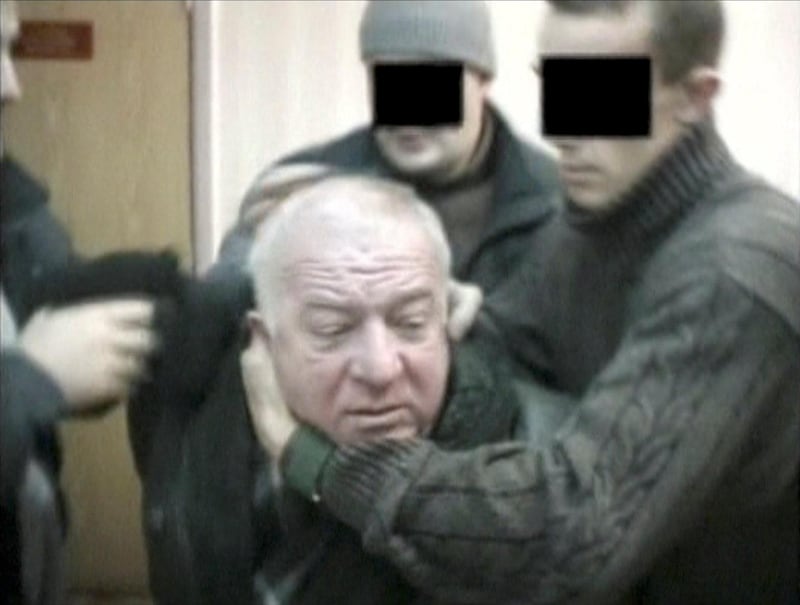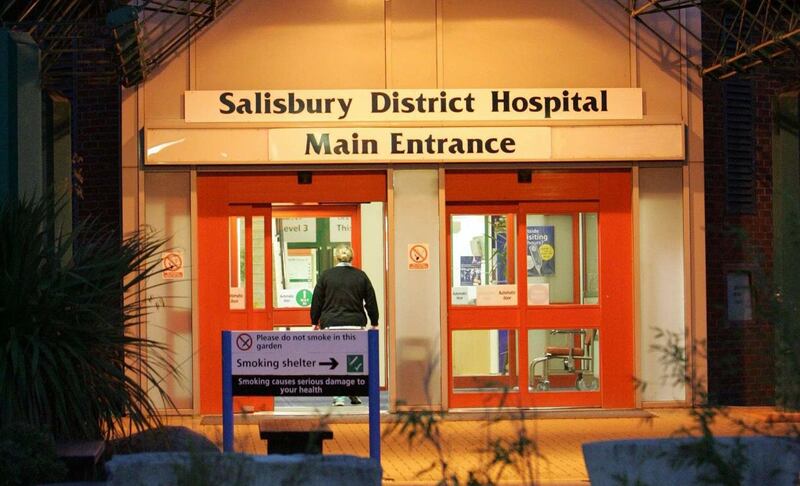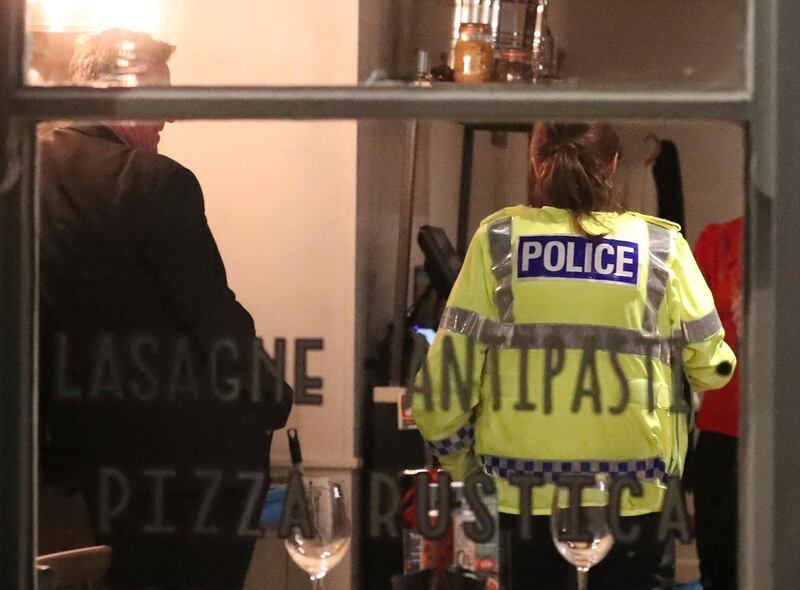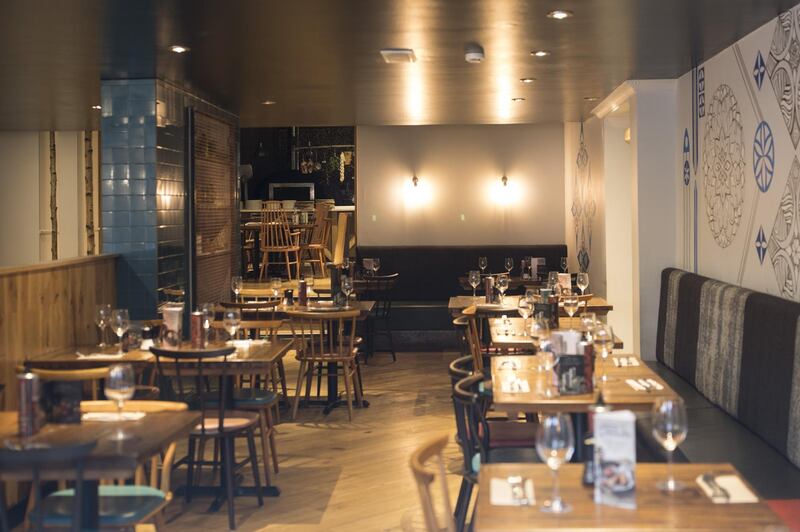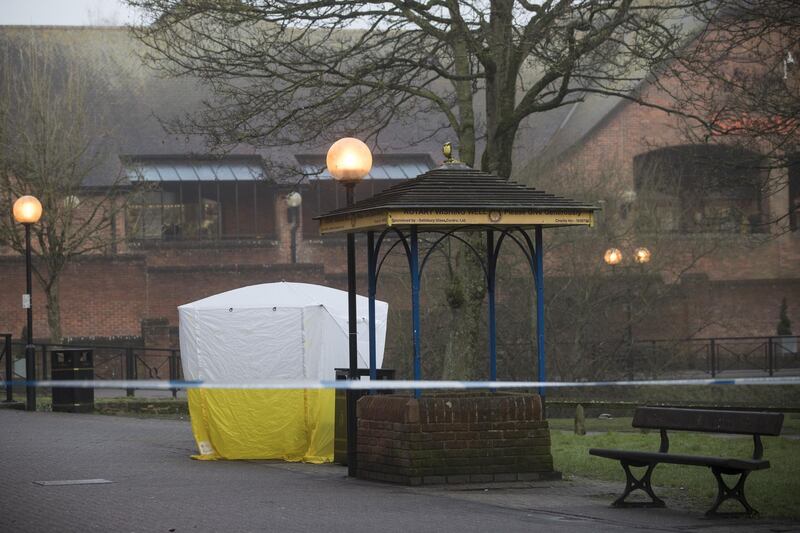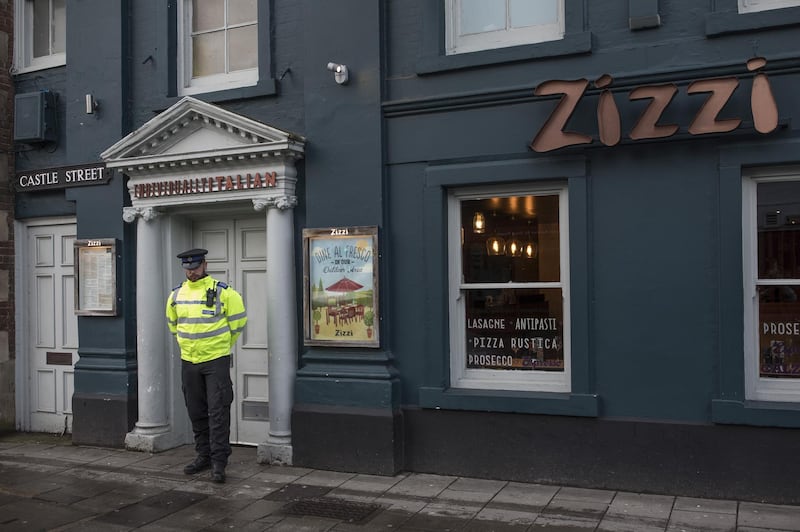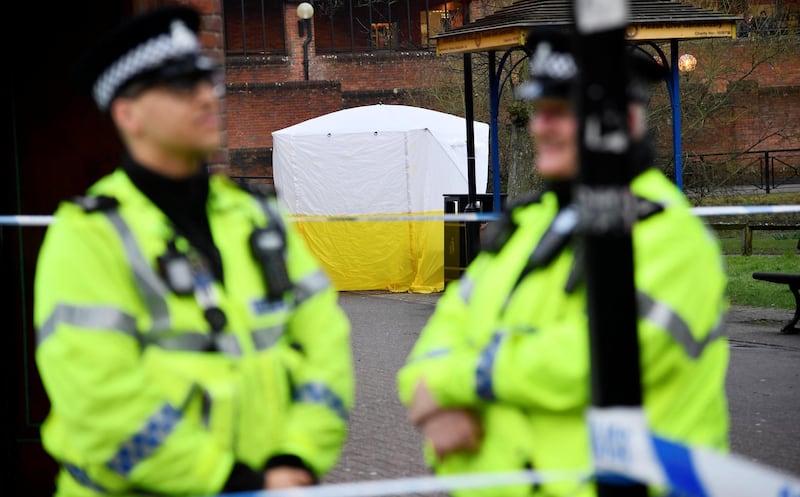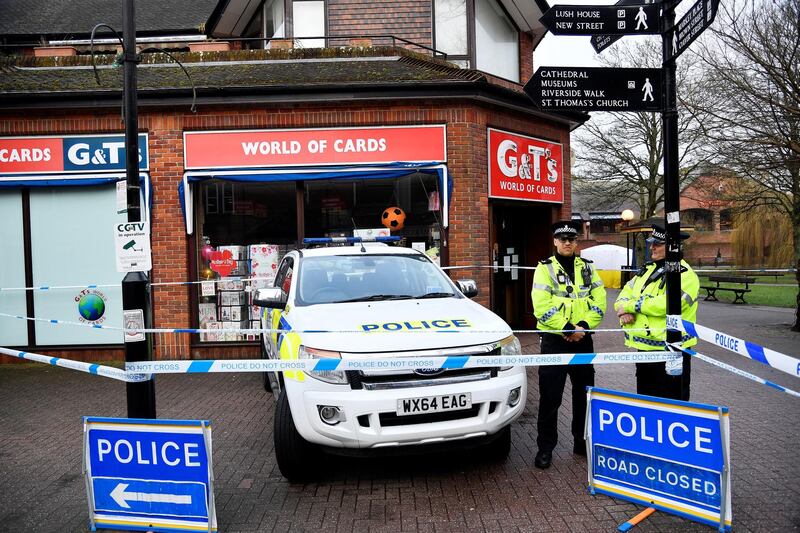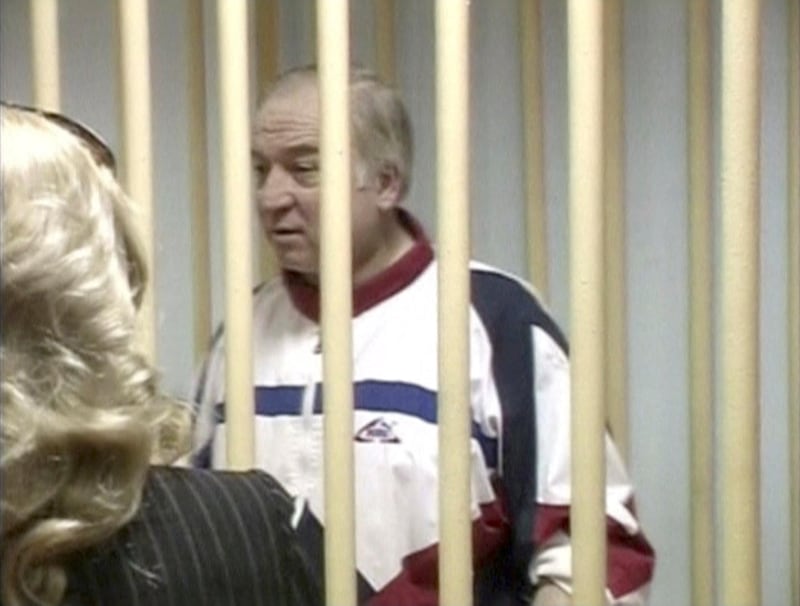Britain’s Foreign Secretary Boris Johnson threatened new sanctions against Russia on Tuesday if Kremlin-backed agents were found to have been responsible for poisoning a double agent who spied for the UK.
Sergei Skripal, 66, and his daughter Yulia, 33, remained critically ill in hospital on Tuesday after being found unconscious on a bench in a Salisbury in southern England on Sunday having been affected by an unknown substance.
The attack had echoes of the Kremlin-backed murder of former agent Alexander Litvinenko, who was killed in 2006 after lethal radioactive polonium 210 was slipped into his tea during a meeting with two Russian agents in London.
_______________
Read more: Former spy critically ill after contact with 'unknown substance' in UK city: reports
_______________
Counter-terrorist police took over the Salisbury inquiry on Tuesday because of the “unusual” nature of the case but were keeping an open mind on what had caused the pair to become so ill. A number of emergency responders have been assessed for the effects of contamination, making it more likely that there had been an attack of some kind, said experts.
Mr Johnson told lawmakers on Tuesday that Russia was a “malign and disruptive” force but stopped short of directly blaming the Kremlin for Mr Skripal’s condition.
“I’m not now pointing fingers,” said Mr Johnson. “But I say to governments around the world that any attempt to take innocent life on UK soil will go neither unsanctioned nor unpunished.”
Mr Skripal was given refuge in Britain after he was exchanged in 2010 for Russian spies caught in the West as part of a Cold War-style spy swap. He has since been living openly in a £260,000 house in Salisbury with his own name on official documents, despite other Kremlin opponents suffering reprisals and harassment in the UK.
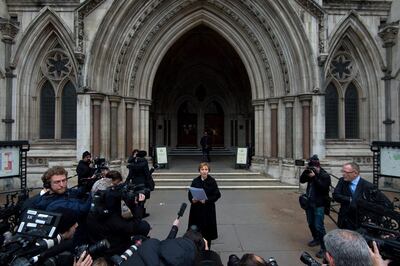
Mr Skripal had been sentenced to 13 years in prison in Russia in 2006 for betraying dozens of Russian agents to British intelligence – transmitting data to a fake stone packed with receiving equipment in a Moscow park.
His information was considered top grade material and his arrival in Britain followed a further success for western intelligence agencies with the unravelling of Russian sleeper cells sent undercover to live in the United States.
The unravelling of the network allowed Britain to request Mr Skripal’s freedom as part of the spy swap between the two sides. The ten spies who returned to Russia were greeted as heroes in Moscow – and Mr Putin sang patriotic songs with them.
The UK faces embarrassment that a valuable double agent could have been attacked on UK soil and could make it harder to recruit double agents in the future, said Bob Seeley, an MP who researches Russian warfare. Mr Skripal’s daughter is believed to have been visiting from Russia and could potentially have led the attackers to her father.
The case appears to show that the UK has failed to learn its lesson from the murder of Mr Litvinenko, his widow told The National.
“It shows people are not secure and not safe and means that something is wrong,” said Marina Litvinenko. “This is not because of the protection received inside Britain, but it’s about who is allowed to come to the UK and who gets visas.”
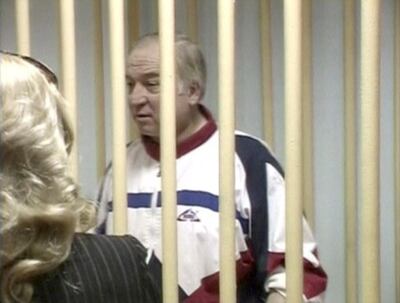
Analysts said that a flurry of attacks by Islamist extremists on UK soil had taken attention away from the threat of Russia.
Gavin Williamson, the defence secretary, warned in January that Russia could thousands of deaths with an attack on the UK’s infrastructure, seen as an attempt to recalibrate the potential threat to the UK.
“There’s been a very naïve political assumption …. that the old threats had gone away and everyone was friends,” said Philip Ingram, former senior military intelligence officer. “The threat has never diminished since the end of the Cold War and since President Putin came into power it’s been growing.”
Mr Johnson told MPs that the crisis could affect British participation at the football World Cup in Russia this summer. Officials later clarified his comments saying it referred to dignitaries and not the England football team.
The former head of Scotland Yard’s counter terrorism operation, Richard Walton, said an attack by Russian would have grave consequences for UK bilateral relations that “are already at breaking point”.
He added: “The UK cannot and will not tolerate state-sponsored terrorism of any kind.”
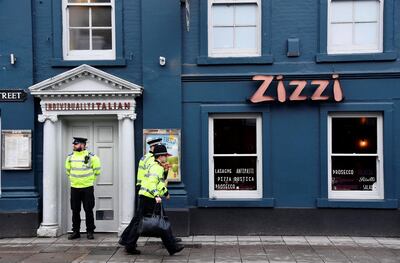
The critically-ill pair are being treated at a hospital in Salisbury, just seven miles from the site of Britain’s most cutting-edge chemical and biological weapons research at a military base at Porton Down.
Witnesses in Salisbury described seeing the pair at a shopping centre, looking as if they were under the influence of a substance. “He was doing some strange hand movements, looking up to the sky,” Freya Church told the BBC. Police have sealed off a pizza restaurant and a pub in the city.
A number of suspicious deaths of Russian dissidents, Putin critics and wealthy businessmen with links to international organised crime have sparked speculation that a team of assassins are operating with impunity on British soil.
Only Mr Litvinenko’s death has been shown to be at the hands of Russian agents. An inquiry into the death of a whistleblower, Alexander Perepilichnyy, in 2012 has heard evidence that he could have been killed by rare toxin used by Chinese and Russian contract killers. He had been due to give evidence about a $230 million fraud involving that implicated Russian tax officials in a conspiracy with organised criminals.
Other suspicious deaths included that of Boris Borezovsky, who was found hanged in the bathroom of his Surrey mansion. Although he was one of Mr Putin’s most bitter enemies, the inquest heard that he had lost most of his fortune and had spoken of killing himself with his closest aides.
Mr Seeley said that Russia had used three different kinds of poison to target its enemies. Radioactive substances were used against Mr Litvinenko, but left a trail that helped to identify his assassins, who remain in Russia effectively out of reach of the UK authorities.
Dioxins were used to try to kill Viktor Yushchenko, the former president of Ukraine, in 2004. He was left disfigured by the attack but survived
The Kremlin said on Tuesday that it was ready to cooperate with Britain over the incident but said it had received no such request so far.
"Nobody has approached us with such a request," Kremlin spokesman Dmitry Peskov said. “Moscow is always open for cooperation."
Mark Galeotti, senior researcher at the Institute of International Relations in Prague, said if it turned out the Kremlin had been involved in the suspected poisoning it would force London to change its tactics on dealing with Moscow.
If it does turn out that Sergei #Skripal was poisoned by #Russia then UK needs to think beyond usual responses (rhetoric, expulsions) & think what new + *asymmetric* options wd punish Moscow. Russians are ignoring old etiquette of spy game, after all
— Mark Galeotti (@MarkGaleotti) March 5, 2018
“If it does turn out that Sergei #Skripal was poisoned by #Russia then UK needs to think beyond usual responses (rhetoric, expulsions) & think what new + *asymmetric* options wd punish Moscow,” Professor Galeotti wrote on Twitter. “Russians are ignoring old etiquette of spy game, after all.”
